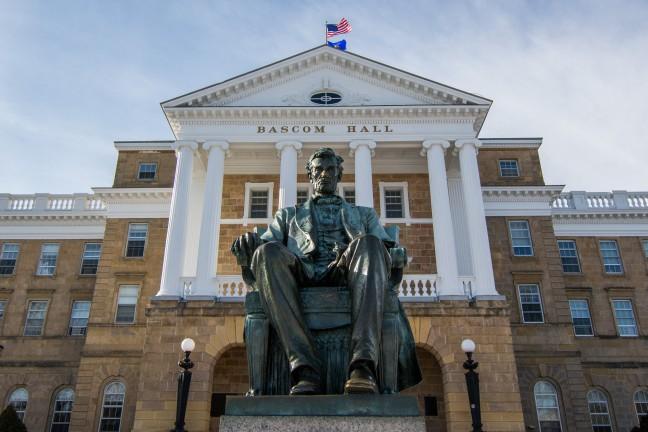On March 12, The Badger Herald published an article detailing a facilitated discussion between University of Wisconsin administrators and students to discuss the results of the campus climate survey released in November 2017. UW Dean of Students Lori Berquam and Vice Provost for Diversity and Climate Patrick Sims discussed the survey results and fielded questions from students and other audience members.
Berquam and Sims also discussed the use of UW’s $3 billion endowment from donors, specifically to support underrepresented and marginalized groups. According to the article, Sims said given that UW is seeing significant budget cuts from the state government, it has been difficult for administrators to influence the allocation of funds, citing, “There’s a certain amount of bureaucracy you have to wade your way through.”
According to the article, “both Sims and Berquam said the push for how the university should allocate funds should come from students as much as it comes from sympathetic administrators. As an employee of the university, Sims said he is not as effective as students are at continually pressuring senior leadership.”
Upon first glance, this feels empowering. We as students should want to be involved in major funding decisions that affect us and our classmates, and it is encouraging to hear administrators promote the importance of student voices.
But a second look suggests this is more a thinly-veiled attempt to exonerate the administration of responsibility to support marginalized groups. We’ve seen this before.
The results from the 2016 campus climate survey revealed data showing students of minority groups feel less welcome on campus and have overall less positive experiences at UW than majority students. The report indicates 81 percent of UW students feel welcome on campus, but the same is true for only 65 percent of students of color and 50 percent of trans/non-binary students.
In a forum hosted by Berquam and Sims in December 2017, UW officials and students discussed the results of the survey. In response to UW student Riley Tsang asking administrators for small, specific actions UW plans to take to address these instances of hate and bias, according to the Herald article, “Sims said the university can’t ‘legislate minds and hearts,’ and said some changes are difficult for the university to impart any real, tangible change through policy changes.”
Translation: “It’s a bummer this is happening, but we probably can’t do anything about it.”
This pattern of disinterest in supporting the campus’ minority groups is concerning and troubling. But that’s not even the most frustrating part about the administration’s quasi-support and request for student voices in Monday’s discussion.
Just a brief glance at the university’s responses to student voices in the past year makes these comments feel hypocritical and disingenuous.
In October 2017, the Board of Regents passed a resolution regarding free speech on campus. Per the new policy, “Protests and demonstrations that interfere with the rights of others to engage in or listen to expressive activity shall not be permitted and shall be subject to sanction.”
The policy essentially prohibits students from protesting in such a way that disrupts others’ free expression.
The report also indicates the chancellor has the authority to discipline students in violation of the policy, in essence allotting the chancellor power to define what kinds of protesting is deemed appropriate. Another Herald columnist said it best, “It’s ‘freedom of speech’ — until you disagree with it.”
This resolution passed with a nearly unanimous vote, with State Superintendent of Public Instruction Tony Evers as the lone dissenter. “There has been no extraordinary disruptions on campus that we need to further constrain free speech,” Evers said. “This appears to be a solution seeking a problem.”
With this attempt at stifling student voices so fresh in our minds, the administration’s plea for students to put pressure on senior leadership for changes in fund allocation is, frankly, insulting.
If the administration is going to ask for student support in advocating change in one area, then they need to be willing to support any and all kinds of student advocacy — not just those that make senior leadership look good.
But if the university is going to continue to silence dissenters, they can’t pass off lack of change as an issue of low student involvement in change advocacy.
Cait Gibbons (cgibbons3@wisc.edu) is a sophomore majoring in math with a certificate in Chinese.


